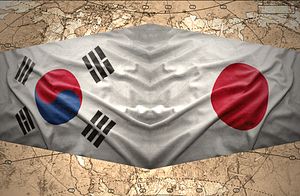Expectations that North Korea will release its investigation into the abduction of Japanese citizens soon are increasing, as the end of the month is generally thought to be the deadline. Japan does not appear to be taking any chances, with Prime Minister Shinzo Abe taking a firm line with Pyongyang in a speech on Saturday in Tokyo. Meanwhile, North Korea is continuing to take steps seen as friendly toward Japan in the lead up to its report. However, the most important point surrounding the abductee question may be that South Korea has not made it an issue amidst a recent cooling in tension with Japan.
While speaking before a rally in the capital, Abe said he would “not back down until every abductee is accounted for,” and that he would “not relent until they are allowed to come back to Japan.” The number of abductees included in North Korea’s report will indeed be a key issue. The Japanese government officially recognizes 17, of whom five have returned. While it is unlikely that Pyongyang will include information on the whereabouts of more than the 12 remaining officially recognized citizens, an independent investigation done in Japan suggested that up to 869 missing persons could be potential abductees.
For its part, North Korea continues to show signs that it will follow through on its report, in a bid to further reduce Japan’s sanctions. On Monday it allowed five Japanese citizens to visit relative’s graves, who died during fighting in the Second World War. According to the Jiji Press, this is only the second such visit since the two countries agreed in May to launch the new investigation, as Pyongyang “hopes to show its intention to abide by the agreements by helping the grave visit end successfully,” according to experts spoken to by Jiji.
Both Japan and North Korea have shown a steadfast intention over the summer to bring this issue to a successful conclusion, which bodes well for the likelihood that Pyongyang’s report will be acceptable to Tokyo. What is interesting is that South Korea has not attempted to intervene, as both it and the U.S. want to see uniform pressure brought against North Korea by their sanctioning partners over Pyongyang’s nuclear and ballistic missile programs.
Seoul’s non-intervention appears to be in tandem with a general strategy of trying to improve relations with Tokyo. South Korea’s Foreign Minister Yun Byung-se met on Sunday with Japan’s Ambassador Koko Bessho for the first time since taking office in February last year. Following the meeting, Yun said, “The South Korean government is not linking history issues with problems in other areas and is actively involved in economic and cultural exchanges.” He also said he hoped to make next year a “starting point” for “a future oriented bilateral relationship.” South Korea appears to accept the assertion that, for now, the abductee negotiations are a very narrow, bilateral issue that will not evolve into greater cooperation, or influence for Tokyo in Pyongyang. Whether that assertion holds after the report is issued could prove a key juncture for Northeast Asian relations.

































